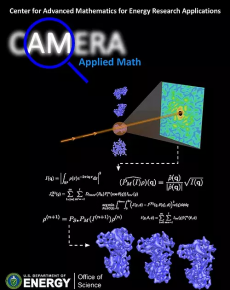Autonomous Discovery Workshop Attracts Worldwide Interest
April 28, 2021
A virtual workshop on autonomous discovery in science and engineering sponsored by Berkeley Lab’s Center for Advanced Mathematics for Energy Research Applications (CAMERA) attracted hundreds of scientists from around the world, reflecting the growing interest in this emerging field.
The three-day meeting was held April 20-22 and chaired by Marcus Noack, a mathematician and research scientist in CAMERA. The goal of the workshop was to build and connect the autonomous discovery community and to show how this unique data collection approach is being applied across a broad range of scientific disciplines, including physics, math, chemistry, biology, materials science, environmental studies, computer science, and electrical engineering.
“If someone were to ask me what field is not affected by autonomous discovery, I would have difficulty coming up with one,” Noack said. “Wherever you want to autonomously explore and approximate some model, it is useful.”
Slides and video recordings from the meeting are available on the workshop website.
About Berkeley Lab
Founded in 1931 on the belief that the biggest scientific challenges are best addressed by teams, Lawrence Berkeley National Laboratory and its scientists have been recognized with 16 Nobel Prizes. Today, Berkeley Lab researchers develop sustainable energy and environmental solutions, create useful new materials, advance the frontiers of computing, and probe the mysteries of life, matter, and the universe. Scientists from around the world rely on the Lab’s facilities for their own discovery science. Berkeley Lab is a multiprogram national laboratory, managed by the University of California for the U.S. Department of Energy’s Office of Science.
DOE’s Office of Science is the single largest supporter of basic research in the physical sciences in the United States, and is working to address some of the most pressing challenges of our time. For more information, please visit energy.gov/science.










